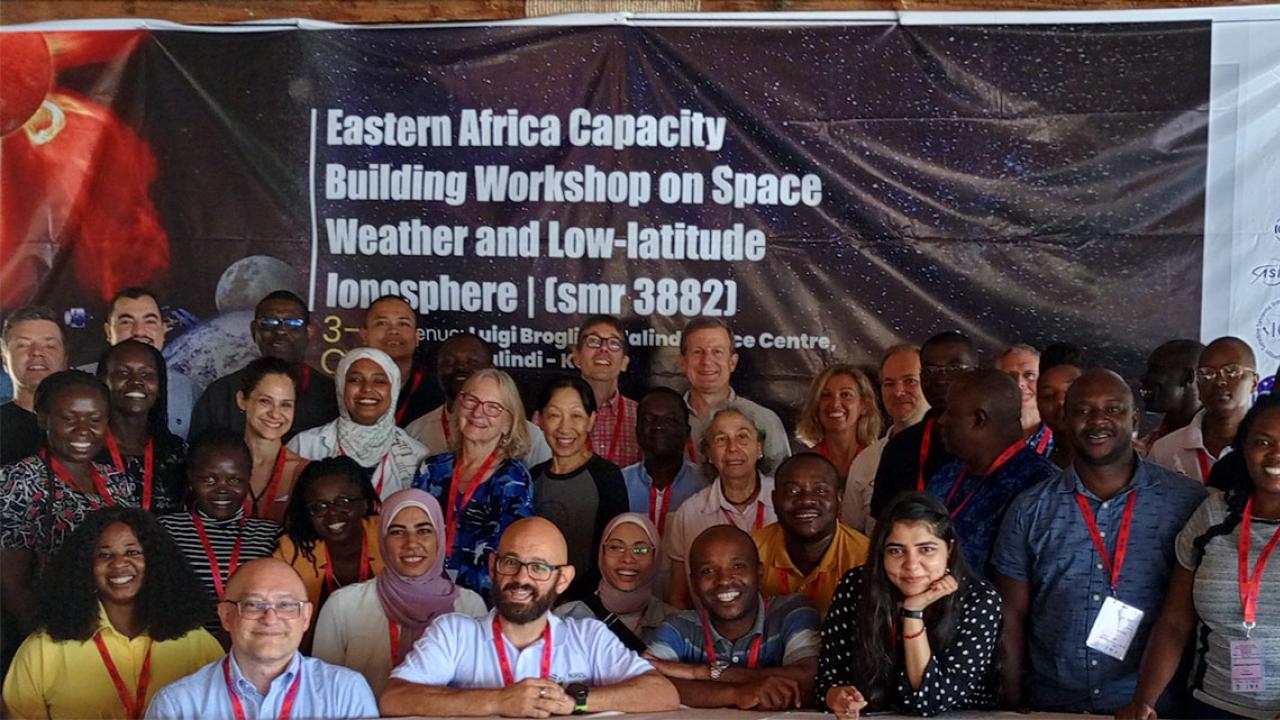
Solar activity, including effects such as coronal mass ejections and solar flares, produces changes in space that can affect the Earth’s environment and sometimes cause problems in the infrastructures used for communication and transportation.
Technologies such as high-frequency radio communication and satellite-based navigation systems rely on the propagation of radio signals through the ionosphere – that part of the Earth’s outer atmosphere between 60 and about 1000 km above the Earth’s surface, where solar radiation ionizes atoms and molecules. Interactions with charged particles in the ionosphere cause delays in radio signals, which are exacerbated by space weather events. These extreme variations in the ionosphere caused by solar activity can provoke disturbances and sometimes wreak havoc in high frequency communication and global navigation satellite systems.
Studying how electromagnetic waves propagate through the ionosphere is essential to build models that help us predict and eventually mitigate these effects. Scarce infrastructures in developing countries mean that we lack data on the behaviour of the ionosphere at low latitudes. There, a complex interplay of effects, including the equatorial ionization anomaly and the characteristics of the local geomagnetic field, makes it particularly difficult to design reliable models.
In order to fill this gap, the Italian Space Agency and the Italian Institute for Geophysics and Volcanology (Istituto Nazionale di Geofisica e Vulcanologia, INGV) have recently launched a project called NORISK (New Observatory for Real-time Ionospheric Sounding over Kenya). This collaboration aims to develop a new ionospheric observatory at the Luigi Broglio Space Centre, an Italian-owned spaceport in Malindi, Kenya, in order to investigate the low-latitude ionosphere and train a new generation of space weather scientists that can contribute to developing this line of research locally.
As part of this project, a team at the ICTP’s Science, Technology and Innovation (STI) unit, which specializes in low-latitude ionospheric modelling, co-organized a training event that took place at the Luigi Broglio Space Centre from 3 to 12 October 2023: the Eastern Africa Capacity Building Workshop on Space Weather and Low Latitude Ionosphere. The ten-day workshop resulted from an international partnership including Boston College, the International Committee on Global Navigation Satellite Systems, the Institute of Navigation, the Kenya Space Agency, Pwani University, as well as the institutions involved in NORISK.
The training sessions included both lectures and hands-on activities conducted on GNSS receivers. “In line with the Centre’s mission to develop sustainable science, at the ICTP’s STI unit, we develop low-cost devices that aim to become a valuable asset and reliable sources of data for ionospheric monitoring,” explained Bruno Nava, who was among the co-organizers.
About thirty participants, including a majority of early-career researchers from developing and least developed countries--mainly in the African continent--were selected to take part in the workshop, which was also an occasion to promote advanced space weather research and related technology development in Eastern Africa, fuel the international scientific dialogue on these topics, and encourage collaborations – both new and existing ones.
As part of the NORISK collaboration, ICTP will host a second Eastern Africa capacity building workshop in October 2024.
















